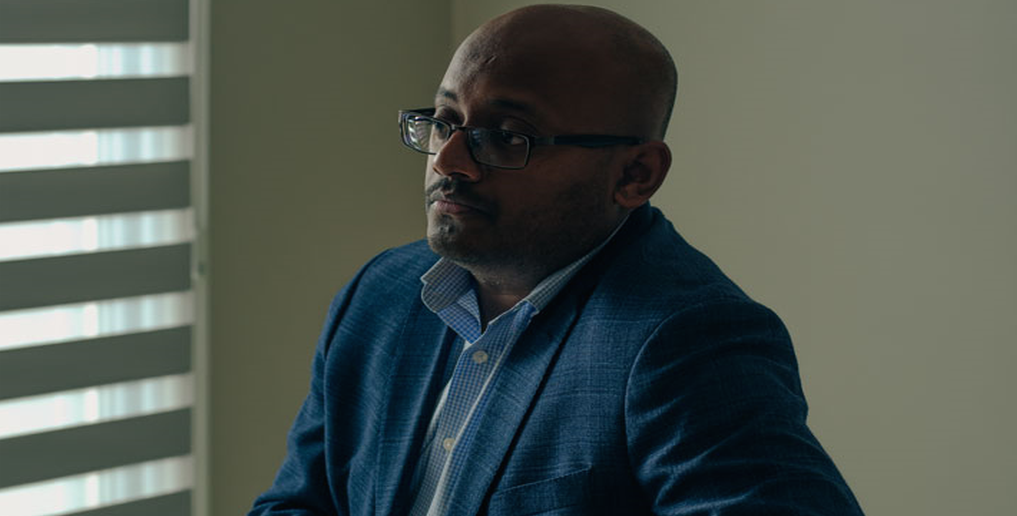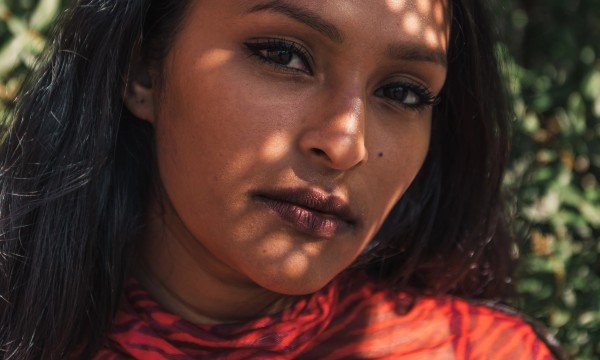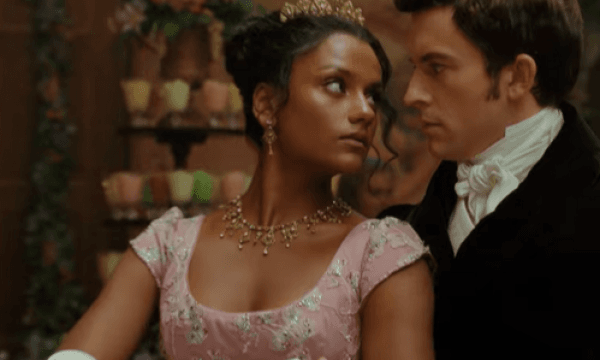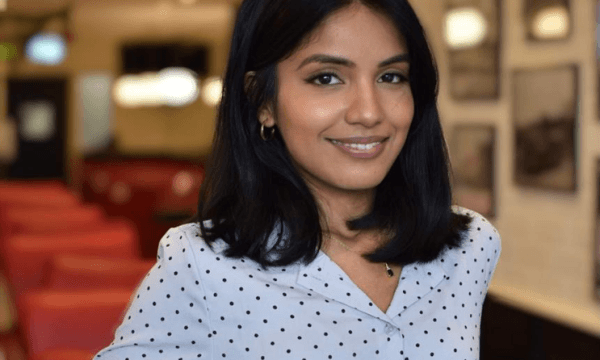
*Photo credit: Ian Patterson (https://www.
***Are you or someone you know in the global Tamil community doing great things? We'd love to feature them: FILL OUT THIS FORM ***
Choosing a career in academia takes some serious commitment, especially with respect to time spent in school. What made you choose this path?
My first year in undergrad, I had a professor who just kind of nonchalantly blurted out in class something like, “I’m quite privileged to be able to think and write all day and get paid for it”. And that stuck with me. I’ve always had a hard time with office jobs and other kinds of labor, which I had been doing since I was sixteen. So, I think him blurting that out in class came at a perfect time for me. Then, when I finished undergrad and I was thinking about what to do, another professor told me to ask myself, “what do you naturally want to do when you wake up in the morning? Find a way to make that your job.” I love research, I love writing. It’s not really something everyone enjoys, and it can of course be painful as hell at times, but it’s basically what I naturally gravitate towards. I think like a social scientist. I see the world through sociological eyes. Might as well get paid for it.
Due to the nature of the subject matter that you teach, you’ve been to some dangerous parts of the world. Can you tell us about one of these experiences and why you were there?
Until the pandemic hit, I was basically on a plane once a month to somewhere. The most recent trip was to northeastern Syria. I was there with some colleagues to interview Canadians who had joined ISIS and who were now being held prisoner. This was partly because there’s an ongoing debate, as your readers probably know, about what to do with these people. Do we just leave them there to rot? Do we bring them back and charge them? I had been studying and interviewing ISIS fighters since 2013, as part of a long postdoc at the University of Waterloo, and these trips to Syria were important for actually talking to some of these fighters now that they were off the battlefield.
What are some misconceptions that you often hear people have about your chosen career path in academia?
I think it’s a generational thing. Now that I’m a professor, even my parents generation kind of “get it”. Oh, he’s a teacher at a university. People kind of get that. But, when I was doing my PhD, doing my postdocs, working at think tanks, they had a very hard time. Like, people are paying you to wander around the planet and write reports? What the hell for? For the second-generation, who all went through university in Canada, it’s not the academia that they ask about, but why I chose social science. I’m sometimes the only person they know who studies this stuff professionally. All of their friends watch CNN and read the newspaper, but I’m the only one they know who produces research, who publishes articles, who appears on TV shows. A friend of mine often says, “I don’t know what you do, but you’re always on the news, so it must be something.” Especially in our community, most people enter medicine, law, real estate, accounting, and so on, so telling people I do humanities and the social sciences – and I do that by choice, not because I didn’t get into medical school – still produces interesting looks.
Can you tell us about 1 major win and 1 major loss you’ve experienced so far in your career?
I mean, getting a tenure-track job has been a major win for me. The job market is a disaster and there are lot of PhDs graduating with no hope of finding sustainable work. So, I’m hugely privileged in that sense. In terms of major losses, I wouldn’t say they are too major. There have been a few grants that I really wanted that we didn’t win. A book I’ve wanted to finish for 3 years which I can’t find the time to complete. But, I wouldn’t call this major or a loss. It’s just an ongoing challenge of working in this field.
What is the endgame with academia? Do you plan on staying the course in academia for say the next 5-10 years? What are some other options that you see people take?
Not sure that there’s an endgame per se. For me, I’ve always been interested in research that is socially significant – makes a policy impact, helps communities, feeds the public discourse. This is why I do so much media, and travel to conflict zones, and so on. As with most jobs I think, when you finally retire, you may look back and realize that all the time you spent “at work” didn’t make much of a difference other than that it allowed you to feed your family and pay the bills. But, in academia – like in politics or NGO work or whatever – there’s a chance that you can have a broader impact. I’ve always needed that. It may not happen, but it’s important to try.
How do you see the future of education playing out, especially Post-COVID?
I really and truly hate online teaching. Like, a lot. But, I do think some of the adaptations we’ve made to survive the pandemic will remain, and I may use some of the tools even after we are back in the classroom. I think it has made a lot of academics realize that you can put on great webinars, and panels, and conferences, without spending thousands of dollars flying people in, and putting them up at hotels and so on. I’ve noticed community organizations do this more. Before, they used to complain to me about lack of funding to fly in speakers. Now, they don’t need any funding, and they are able to put on important events, and include more voices from all over the world. So, I think some of these lessons will stay with us.
What advice would you give to young people considering academia as a possible career path?
I would say if you love teaching and love research, consider it seriously. A Masters degree is a good way to test the waters. Do you enjoy it? Do you picture yourself doing this for the next 40 years? The Tamil community in 2020 is very different than even a decade ago. The options are endless. There’s more understanding on the part of parents to explore different pathways. And people should feel free to reach out to me and other professors with questions. I talk to a lot of students who are interested in entering academia, but have no idea what to do – and I’ll always be happy to have these conversations.
What role has your family played in the choices that you’ve made in your life so far?
My parents were always pretty open about letting me do whatever I wanted. I think after I failed math a few times, whatever dreams they had about me going to medical school went out the window. They never really understood research and what it means, but they were always supportive. I think the game changer was when the 2014 terrorist attack in Ottawa happened and I was interviewed on CBC by Peter Mansbridge. A lot of my mom’s coworkers mentioned to her at work that “we saw your son”. I think that’s when she was kind of like, “I don’t know what this guy does, but he’s talking to Peter Mansbridge, so that’s something I guess.”
Do you have any mentors that have helped you in the progression of your career? Do you think everybody needs mentors? How does somebody find a mentor?
Mentors are hugely important, not just for teaching you the ropes, but also opening up doors for you, bringing you along to events and meetings, coauthoring with you, editing your work, and so on. Nobody teaches you any of these things in grad school. You basically just take more courses in grad school, but there’s a whole host of other things that make you a “good scholar” that aren’t often taught. So, this is where mentors come in. This is why I often tell potential grad students to choose where you do your PhD based on the supervisor and not on how famous the school is. You hear a lot of horror stories about students who went to Harvard and Stanford and basically never see their supervisor for months. The supervisor doesn’t give them opportunities to shine, help them with networking, and so on. So, then what’s the point? You have a piece of paper from a fancy school but it’ll mean nothing in the long run.
As I mentioned earlier, be confident and reach out to professors you are reading, professors who are in your field. Most are quite nice and more than willing to chat with you and give you guidance. If some faculty member doesn’t respond, don’t let it spook you. Try someone else. Part of our job is to help students – some professors might be quite bad at this part of the job, but keep looking.
Do you feel like social media is a necessary “evil” in the line of work that you do? Has it been useful as a networking tool or generating opportunities for you outside of your “day” job as an assistant professor?
Absolutely. I’m not particularly active on Instagram or other platforms, but I’m very active on Twitter. And it has been massively useful in a number of ways. First, people start to really know your personality and know the kinds of things you’re working on, so when you reach out to someone new, they often have at least heard of you. Second, there are lot of funders and producers and editors on Twitter, and I’ve received dozens of invitations to be on grants and write for publications simply because some editor follows me and saw me tweet about something. A former opinion editor at The Atlantic follows me on Twitter and I had tweeted some random thoughts about the sarin gas attack in Syria. And she sent me a direct message asking if I wanted to turn those tweets into an article. So, then I got published in The Atlantic, and I got to know the opinion editor better. It simply wouldn’t have happened if I wasn’t active on Twitter.
Of course, Twitter is also a bit of a hellscape. But, you learn to ignore the noise after awhile.
What would be an alternative “dream” job if you weren’t an Assistant Professor?
An investigative journalist probably. Several of them are friends of mine, and their daily life comes pretty close to mine. Most of the other dream jobs I would want involve skills I don’t have. So, I wish I knew how to paint, wish I knew how to cook, wish I knew how to play instruments. But, I basically suck at all of those things.
---
What do you think you would tell 16-year Amar looking back?
Probably drink less, get into less fights, drive slower. Being 16 in Toronto in the 90s was pretty difficult. Lots of law enforcement suspicion. Lots of violence. But, younger Amar also had a lot of good friends and had a lot of fun – details of which remain classified – so I think he did okay. Thanks to my parents for that, of course.
What is your favourite book(s) you’ve read recently and why?
I just started the new biography of Malcolm X called The Dead Are Arising, and it’s quite amazing. Much less dense than other biographies, and a lot of new information.
What is a new belief, behaviour or habit that has most improved your life?
It only took me 38 years, but I think I’ve figured out the secret to not being stressed all the time: internalize the idea that you are never going to be on top of it all. You will never answer all those emails, never write all those articles, never stop reading, never stop preparing for classes. It’s a simple insight, but it has given me some comfort know I’ll be behind on things forever, and that’s ok haha.
If you were given $1 billion, how would you allocate the money to change the world?
I would invest it in young people, related to literacy, mentorship, confidence building, taking risks more. With the topics I study, I think this is a constant concern and it is also massively underfunded.
---
How would you describe the Tamil community in Canada?
Fractured, but healing. I’m so proud of the “new” conversations that are happening in the community about caste, gay rights, gender fluidity, human rights, anti-black racism, islamophobia, disability, mental illness, domestic violence and so on. The community obviously struggled with these issues for a long time, but there was always so much stigma associated with these issues that a lot of it was swept under the rug. The confidence with which a new generation is talking about these issues is amazing.
What is your favourite Tamil food (meal or dessert)?
Kothu roti, ride or die.
What is your favourite Tamil movie?
I don’t really watch Tamil movies, sorry.
What does Tamil culture mean to you?
Whatever you want it to mean. There’s some pillars of course, like family, food, music, history, language. But, so much of all this is in flux now that I don’t even know if it’s one thing anymore. And trying to distill what it means down to a solid set of factors can be its own form of erasure. It’s a conversation we should continue to have as a community, but it should happen with open arms, but not in ways that have been alienating in the past.
Connect with Amarnath via his TC profile
***Looking to create your love story? Join the other couples who have dated and got married through myTamilDate.com!***
"How France Met Canada: A MyTamilDate.com Love Story"
"How a Message on myTamilDate.com Led to an Engagement for Lavanya & Vitharan"
Related Articles:
- "How A Daily Ritual and Family Heritage Inspired a Multi-Million Dollar Company: Meet Sashee Chandran, Founder of Tea Drops"
- "Danny Sriskandarajah's Journey From Rural Sri Lanka to CEO of Oxfam Great Britain"
- "Meet Tamil-Canadian Tech Entrepreneur Mano Kulasingam"
- "The NBA Bubble: Dr. Priya Sampathkumar Helped Make It Happen"
- "These Tamil Founders Behind Agritech Startup Dunya Habitats Want To Alleviate Food Security Globally"
- "Marketing Maven Jackson Jeyanayagam Shares Insights From His Illustrious 20-Year Career"
- "Angel Investor Jay Vasantharajah On Building His Portfolio One Day At A Time"
- "Meet Tamil-Canadian Journalist Kumutha Ramanathan"
- "Breaking Into Hollywood: Meet Tamil-Canadian Actor Vas Saranga"
- "Meet Rebecca Dharmapalan - Filmmaker, Legal Scholar, And Activist"


























